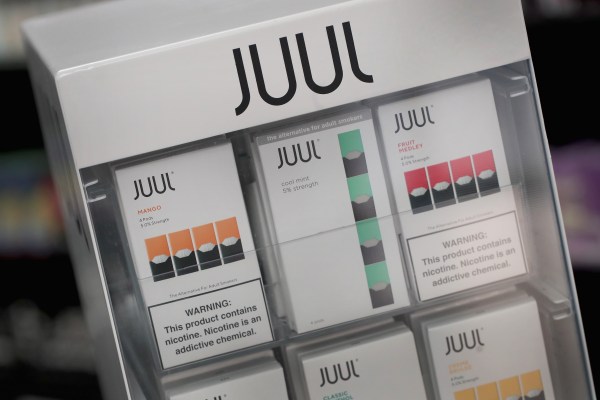Lawsuit alleges Juul advertised in Seventeen Magazine, Nick Jr. as part of campaign explicitly ta... - 3 minutes read
 A lawsuit filed by the Massachusetts attorney general includes new details about how the company intentionally marketed illegally to teens, including advertising on websites for Seventeen Magazine, Cartoon Network, Nickelodeon and Nick Jr.
A lawsuit filed by the Massachusetts attorney general includes new details about how the company intentionally marketed illegally to teens, including advertising on websites for Seventeen Magazine, Cartoon Network, Nickelodeon and Nick Jr.The suit from Attorney General Maura Healey makes good on the 2018 announcement from her office that she would investigate the company’s marketing and advertising campaign for illegally targeting children.
Filed in Suffolk Superior Court today, the lawsuit reveals that Juul rejected an initial marketing plan that would have focused on adult smokers, instead choosing to use younger models and pitch its product to youth-oriented websites and in targeted campaigns on social media.
Juul did not respond to a request for comment.
“Juul is responsible for the millions of young people nationwide who are addicted to e-cigarettes, reversing decades of progress in combating underage tobacco and nicotine use,” said AG Healey. “Our lawsuit sheds new light on the company’s intent to target young people, and we are going to make them pay for the public health crisis they caused in Massachusetts.”
According to new allegations in the lawsuit, Juul bought ads for its Vaporized Campaign on websites including: Nickelodeon, Nick Jr., The Cartoon network, Seventeen Magazine — along websites designed to help children with math and social studies skills like coolmath-games.com and socialstudiesforkids.com.
Massachusetts’ attorney general also pointed to the company’s use of social media stars and celebrities who had a large following among tweens and teens. These were stars like Miley Cyrus, Cara Delevingne, Kristen Stewart, Luka Sabbat and Tavi Gevinson.
The company even ignored the age verification tools it put in place when distributing marketing materials, according to the attorney general’s allegations. Indeed, Juul sent marketing emails to 40,000 individuals who failed to complete the company’s age verification process. Another 83% of the 420,000 emails the company collected couldn’t be matched to a record associated with someone 18 years old or older.
Glaringly, the company allowed individuals to set up more than 1,2000 accounts using email addresses associated with high schools in Beverly, Malden and Braintree, Mass.
The suit also alleges that Juul’s customer service representatives advised potential customers on how to evade minimum legal sales restriction requirements.
In Massachusetts, the results of the marketing campaigns and tactics from Juul and other e-cigarette companies are more than 50% of high school students saying they’ve tried e-cigarettes, with another 30% saying they’ve used e-cigarettes in the past 30 days.
For Juul that has meant $3.3. billion in U.S. retail sales between September 2018 and August 2019 — and a roughly 75% market share of the electronic cigarette market.
Source: TechCrunch
Powered by NewsAPI.org